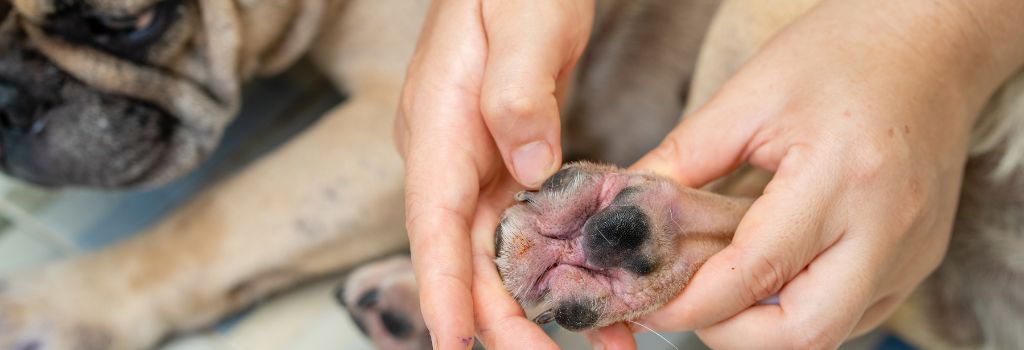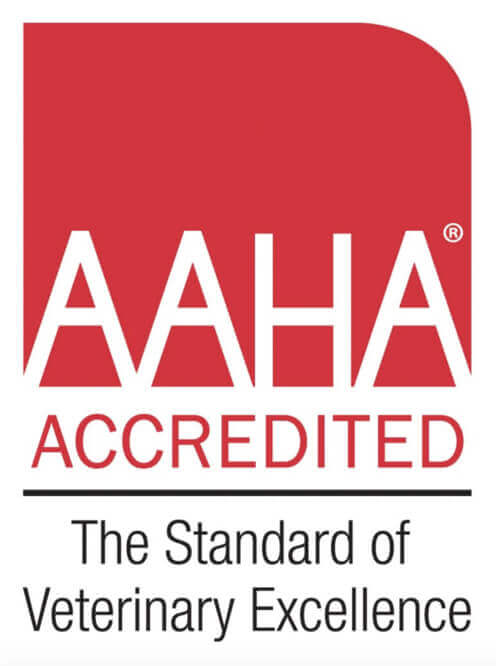 If you think your pup is suffering from an allergy, you’re not alone. Allergies are a common issue for dogs, and they can have a serious impact on your furry friend’s health and well-being. At Bridge Veterinary Hospital, we understand the importance of addressing your pup’s allergies. That’s why we’re sharing our answers to some of the most frequently asked questions regarding this topic. In this article, we’ll provide you with an overview of how common allergies are in dogs, what some of the most common allergies are, how to recognize them, and what treatment options are available for your canine companion. Let’s dive in!
If you think your pup is suffering from an allergy, you’re not alone. Allergies are a common issue for dogs, and they can have a serious impact on your furry friend’s health and well-being. At Bridge Veterinary Hospital, we understand the importance of addressing your pup’s allergies. That’s why we’re sharing our answers to some of the most frequently asked questions regarding this topic. In this article, we’ll provide you with an overview of how common allergies are in dogs, what some of the most common allergies are, how to recognize them, and what treatment options are available for your canine companion. Let’s dive in!
How Common are Dog Allergies?
Allergies are much more common in dogs than many people realize. Allergies are one of the primary issues we see in our canine patients, and they are becoming more and more prevalent. Patients present with various symptoms, but allergies are the underlying cause in many cases.
Common Dog Allergies
Dogs can experience several different types of allergies, which can be challenging to manage. Like people, dogs’ sensitivity to specific allergens varies.
Common dog allergies include:
- Flea allergies
- Food allergies
- Pollen allergies
- Mold allergies
- Contact allergies
Food allergies are some of the most common allergies in dogs. Protein sources (chicken, beef, or pork) are the most prevalent allergens in these situations.
How Do Allergies Impact My Dog’s Health and Overall Well-Being?
Chronic itchiness and skin irritation can lead to excessive scratching, licking, and chewing, which often cause hair loss and skin sores. In severe cases, sores and irritation can also lead to secondary bacterial or fungal infections.
Furthermore, an online study called The Itchy Dog Project found that the severe itchiness associated with atopic dermatitis is linked to problematic behaviors, including chewing, hyperactivity, mounting, eating feces, and excessive grooming. This indicates that allergies could have psychological effects on dogs, leading to stress and reduced quality of life.
What Are Some Signs and Symptoms of Dog Allergies?
Recognizing the signs and symptoms of dog allergies is crucial when it comes to ensuring that your furry friend receives proper care and treatment.
Common symptoms of allergies in dogs include:
- Itchiness
- Hives
- Hair loss
- Swelling
- Red, inflamed skin
- Chronic ear infections
- Diarrhea
- Vomiting
- Swelling of the face, ears, lips, eyes, or feet
- Sneezing
- Rashes
- Sensitivity to touch
- Itchy, watery eyes
How Will a Veterinarian Diagnose Allergies in My Dog?
As mentioned above, we may run various tests to diagnose allergies. In many cases, we also reach a diagnosis through exclusion. We start by performing a thorough physical exam to look for things that could easily rule out allergies, like fleas or ticks. The skin tells us a lot, so we’ll look closely for bacteria, yeast, and other common problems. We’ll also consider changing seasons, moving to a new area, changing food, and other factors that could easily trigger an allergic reaction.
Diagnosing allergies in dogs is like being a detective and solving a mystery in many ways. As veterinarians, our job is to put all the puzzle pieces together to figure out what’s going on and recommend a treatment protocol to ease the patient’s symptoms.
How Are Dogs Treated Using Anti-Inflammatory Therapy?
We use a few different anti-inflammatory therapies to treat dog allergies. While steroid shots were the method of choice in the past, today’s anti-inflammatory medications, including Apoquel and Cytopoint, are safer and more effective.
Omega-3 fatty acids are another option. These supplements have natural anti-inflammatory properties, and they are available over the counter. They’re also very affordable. When administered according to your veterinarian’s instructions, they can help alleviate symptoms naturally.
How Is Shampoo Therapy Used to Treat Dogs’ Allergies?
Shampoo therapy is a safe and effective means of treating certain skin allergies in dogs. These products are designed to remove allergens from the skin, rehydrate dry patches, and provide direct application of therapeutic agents to affected areas. Keep in mind, though, that not all dog shampoos are created equally. Ask your veterinarian for recommendations.

What Is Hyposensitization and Desensitization Therapy for Dog Allergies?
Hyposensitization and desensitization therapy, also known as allergen-specific immunotherapy (ASIT) or allergy shots, is a treatment method designed to help pets with allergies by gradually introducing increasing quantities of specific allergens to their system. This method aims to reduce the immune system's overreaction to allergens, leading to increased tolerance over time.
To begin the process, your veterinarian will perform tests to determine the specific allergen(s) causing your dog’s reactions. Based on these results, a customized serum containing small amounts of the identified allergens is created, which your vet will then train you to administer via injections or drops in the mouth. The dosage of allergens is gradually increased until a maintenance level is reached.
Studies have shown that approximately 50% of dogs who receive immunotherapy have an excellent response, while 25% experience a moderate response, and the remaining 25% show no response at all. Keep in mind that this treatment can take up to a year to show significant results, so you’ll need to be patient and consistent to determine how well it works for your four-legged best friend.
The key advantage of desensitization therapy is its potential to provide long-lasting relief from allergy symptoms, reducing or even eliminating the need for additional medications. While this method may not work for every pet, it is a valuable option for those suffering from severe or persistent allergies, especially when other treatments have not been successful.
Conclusion
Dog allergies can have a serious impact on your pup’s health and well-being. At Bridge Veterinary Hospital, our veterinarians are experienced in diagnosing, treating, and managing dog allergies. We offer a range of treatments, including anti-itch therapy, shampoo therapy, and hyposensitization or desensitization therapy, to provide relief from allergy symptoms. If your pup is suffering from allergies and you live in or near Point Pleasant, NJ, give us a call at (567) 361-3407 today to set up an appointment!


